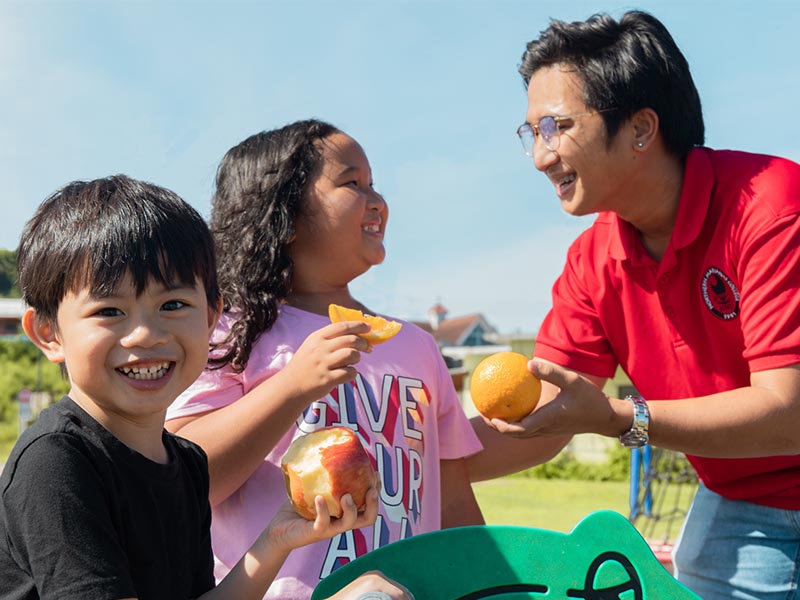The Northern Marianas College’s Cooperative Research, Extension, and Education Services (CREES) was recently awarded $620,000 as part of a $10 million grant from the United States Department of Agriculture to study simulations to identify and test drivers of resiliency in food supply chains for decreasing food waste and increasing food and nutrition security, healthful diets and health among children.
NMC-CREES is involved in this grant with University of Hawaii Manoa and other institutions across the U.S.-affiliated Pacific region. This is the third competitive grant that the Children’s Healthy Living Program has received substantial funding for.
The CNMI Children’s Healthy Living Program, in collaboration with the Tanapag, Achugao, San Roque, and As Matuis (TASA) Role Models, competed against 22 countries to receive the 2015-2017 World Health Organization’s Health in All Policies award for community-led work which sought to enhance the village environments that children live, learn, and play in.
NMC-CREES Interim Dean Patty Coleman is the CNMI lead investigator. Coleman was a recipient of the USDA National Institute of Food and Agriculture Excellence in Integrated Research, Extension, and Education Award for her role in the original Children’s Healthy Living Program grant.

The United States Department of Agriculture recently awarded $10 million to the Children’s Healthy Living Food Systems Model to study simulations to identify ways on decreasing food waste and increasing food and nutrition security among children. Northern Marianas College Cooperative Research, Extension, and Education Services (CREES) is involved in this grant with University of Hawaii Manoa and other institutions across the U.S.-affiliated Pacific region.
“Dangkulo na si yu’us maase yan olomwaay to our partners from the Public School System, CNMI Head Start, CHCC, CNMI WIC, NCD Task Force, our pool of volunteers, and many others, for working in partnership for the health of our children and community,” Coleman said, “The success of CHL is largely due to partnership and collaboration.”
The CHL Food Systems grant is a multi-site study that aims to prevent chronic disease in households and communities across the U.S. Affiliated Pacific insular areas. These areas (Alaska, Hawaii, Guam, Commonwealth of the Northern Mariana Islands, and American Samoa) are a part of the Children’s Healthy Living Program for Remote Underserved Minority Populations in the Pacific Region.
Objectives of the program are to develop and test a system dynamics stakeholder-driven transdisciplinary multilevel food and nutrition security resiliency model, provide graduate training to future leaders from the US Affiliated Pacific Region in food and nutrition security model development, and to incorporate model key results and tools into extension and other community programs with online access to simulation tools on the CHL website to guide multilevel systems change.
NMC President Galvin Deleon Guerrero said that this is a great achievement for the college.
“We are glad that the college and its CREES program are still able to continue the great work they do in promoting and ensuring a healthy community,” Deleon Guerrero said.
This $10 million investment is made under the National Institute of Food and Agriculture (NIFA) Sustainable Agricultural Systems program.
It is part of USDA’s financing of sustainable agricultural research projects aimed at improving a robust, resilient, climate-smart food and agricultural system. In total, USDA will be funding more than $146 million in sustainable agricultural research.